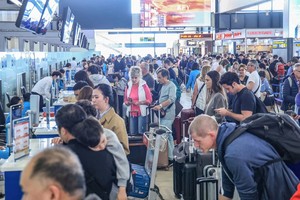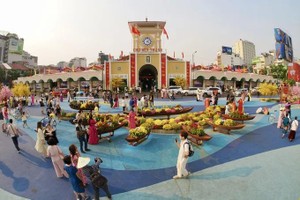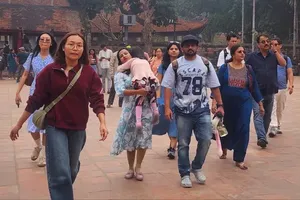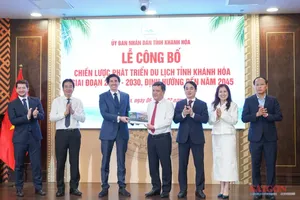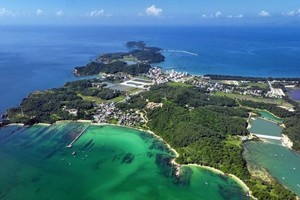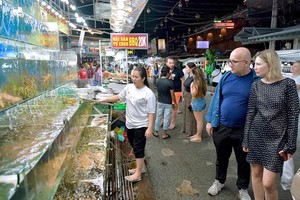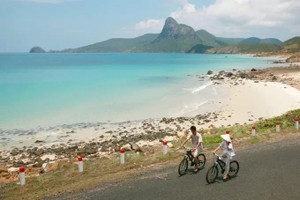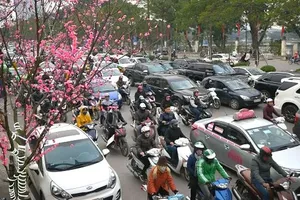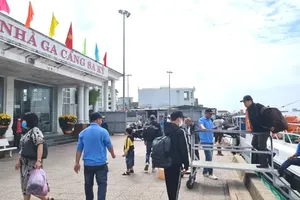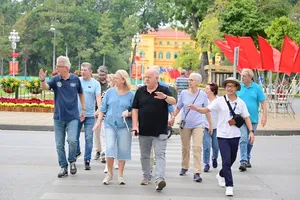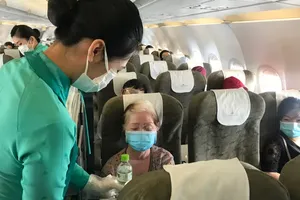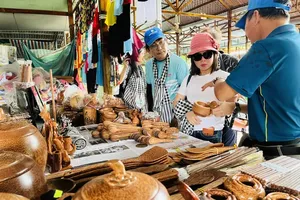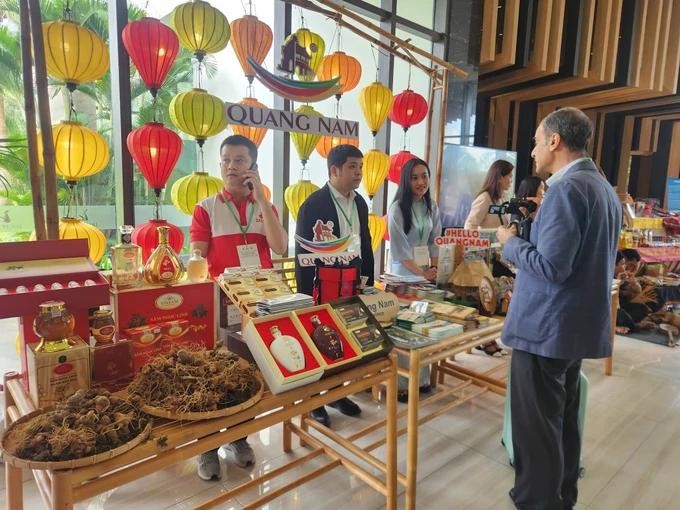
The Ministry of Culture, Sports and Tourism in collaboration with UN Tourism and the People's Committee of Quang Nam Province today organized the first International Conference on Rural Tourism and the second Annual Meeting of the UN Tourism Best Villages Network.
The conference was attended by 300 delegates from 50 countries around the world, representatives of national and local management agencies of UN Tourism member countries and Vietnam.
Deputy Minister Ho An Phong of Culture, Sports, and Tourism highlighted that Vietnam is predominantly an agricultural nation, with over 70 percent of its population residing in rural areas and benefiting from abundant natural resources.
In recent years, the country has focused on agricultural and rural tourism to appeal to both domestic and international travelers. Conversely, rural tourism plays a vital role in fostering agricultural and rural development by diversifying livelihoods, boosting the consumption of agricultural goods, and enhancing local incomes.
Most agricultural and rural tourism initiatives in Vietnam's remote regions are characterized by small-scale operations, a lack of professional management, and significant challenges.
These limitations underscore the need for a strategic vision and the formulation of effective solutions to advance rural tourism development policies. Achieving the established objectives while addressing broader global challenges demands thoughtful planning and adaptive measures.
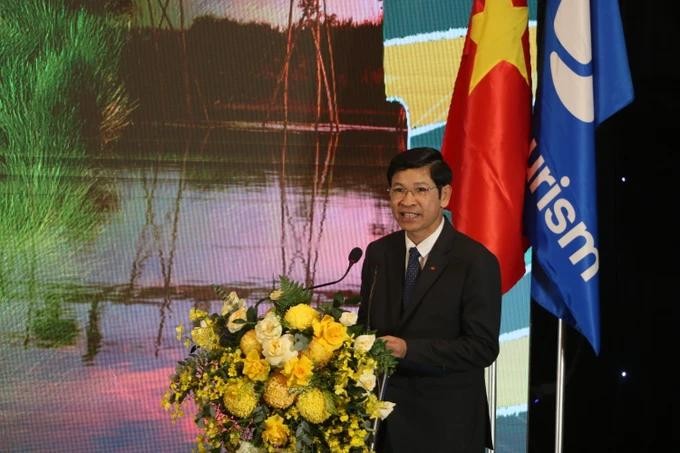
Secretary Luong Nguyen Minh Triet of the Quang Nam Provincial Party Committee emphasized that the conference presents a significant opportunity for the province to further enhance communication and showcase the image of "Quang Nam - Green Tourism Destination”.
He highlighted the importance of fostering strong and effective collaboration between Vietnam's tourism sector, particularly Quang Nam, and UN Tourism, as well as with other countries, member organizations, and the Best Tourism Villages recognized by UN Tourism.
According to him, since 2019, Quang Nam Province has been actively promoting a unified message focused on green tourism development, with an emphasis on sustainability, ultimately becoming the first region in the country to establish a comprehensive set of provincial green tourism criteria.
Over the past five years, Quang Nam Province has demonstrated a strong commitment to the development of sustainable tourism. This strategic focus has resulted in a notable increase in visitor arrivals and has garnered positive international recognition. Furthermore, these efforts align with the Vietnamese Government's commitment to achieving Net Zero Tourism, contributing significantly to the nation's broader sustainability goals.
The conference discussed and oriented policies for sustainable rural tourism development, ensuring equitable distribution of tourism benefits, job creation, protection of natural and cultural resources, social integration, empowerment of local communities and vulnerable groups, including women, youth and indigenous people. Tourism is one of the driving forces of economic growth and is considered an effective sector for achieving decent work.
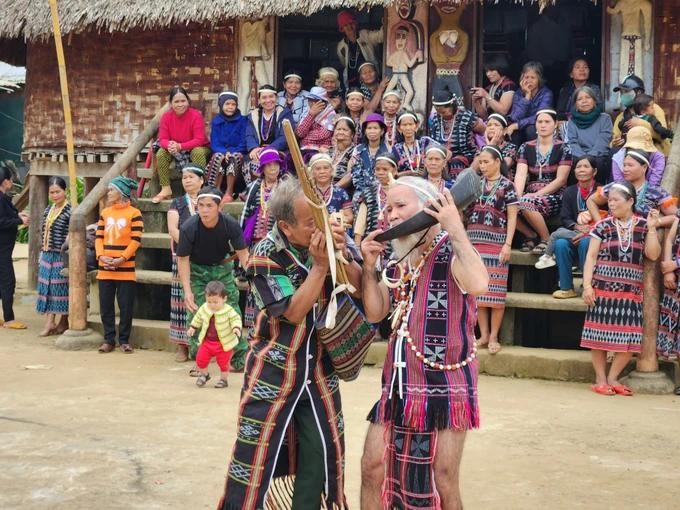
The conference emphasized the significance and impact of tourism in fostering rural development by concentrating on three key areas including national and local strategies for advancing rural tourism, involving and empowering local communities in the tourism sector and creating tourism products, encouraging innovation, and enhancing market access for rural destinations.
Deputy Secretary-General Zoritsa Urosevic of the United Nations Tourism Organization emphasized that tourism can play a crucial role in fostering local economic diversification, enhancing the relationship between tourism and agriculture, empowering indigenous communities, driving innovation, and attracting investments. By prioritizing rural tourism, it can stimulate economic activities, reinforce the bond between individuals and their environment, safeguard cultural traditions, and create new opportunities.
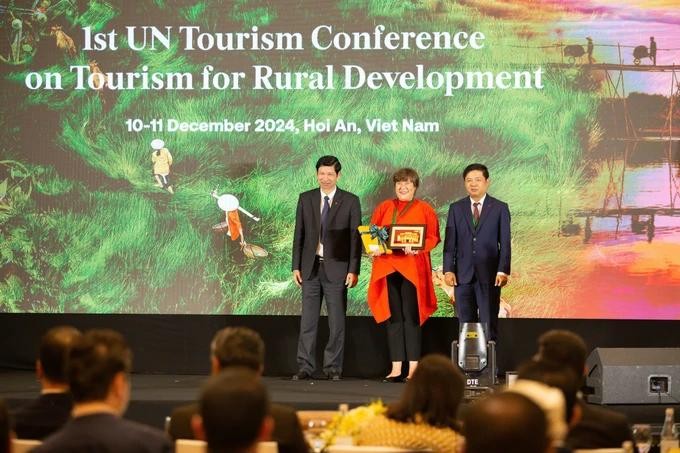
The Deputy Secretary-General of the United Nations Tourism Organization emphasized the organization's dedication to incorporating rural tourism into the global agenda, highlighting its importance for enhanced adaptation.
In 2024, the global tourism sector is experiencing a remarkable resurgence, with many regions returning to pre-2019 levels, and Vietnam has also reported significant achievements. Rural communities possess a wealth of traditions, distinctive cultural identities, and unique products that can be woven into tourism development. This approach aims to secure livelihoods, promote integration, and strengthen efforts in environmental conservation and biodiversity protection.


